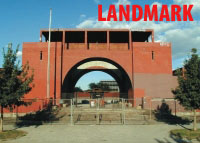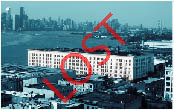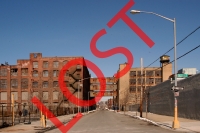Congestion Pricing at the City Council
Gotham Gazette has a three-part rundown (here, here and here, with background here and here) on the City Council's congestion pricing hearings, which started today. As we've said before, congestion pricing is generally a good thing, though the current plan certainly needs some equity tweaks.
Herewith, some excerpts and commentary:
Can you trust City Hall? The state? The Metropolitan Transportation Authority?
In the case of the MTA, no.
[Most] members wondered more about funding for projects in their individual districts. [Tish] James, for example, suggested a study to determine the feasibility of linking the G train to the IRT.
We'll be parochial and say "Thanks, Tish".
[If congestion pricing goes through,] there will be “more bus lines and new ferries and commuter train access.” But he [CM John Liu of Queens] said the MTA and the city must stick to the timelines for improving transit. “The big problem people have is they don’t trust the MTA and even city government for following through and using the money effectively.”
Right on both counts.
Regarding the "Jersey Inequity":
Because the congestion pricing proposal before the legislature subtracts tolls from the congestion fee — and sets the maximum that someone would pay to enter Manhattan at $8 a day — many people who cross the Hudson River will essentially get a free ride.
Its not clear if this applies only to the Jersey crossings directly into the congestion zone, or if it also affects other crossings from LI, Westchester, etc. But if the goal is to reduce the number of cars entering midtown, you need to raise the price of admission for everyone. That's the whole point of a disincentive - to change behavior. Charging toll-paying drivers the same amount they are paying now does not create much of a disincentive.
And contrary to what a commenter says, Jersey drivers have not been paying a "congestion" toll for decades. They have been paying a usage toll for the use and upkeep of the bridges and tunnels (and whatever else the PA chooses to use the money for). City bridges (though not tunnels) are free, but we pay for them via taxes.
Regarding E-ZPass:
But whatever the merits of the E-ZPass, the preferential treatment given those who have them raises concerns about equity. To get an E-ZPass, a person needs to have a credit card or bank account, keeping it out of the reach of some poor New Yorkers.
You also need a car, and to drive a car, you need insurance. You need gas too. None of those are cheap. So its not clear how many poor New Yorkers we are really talking about here. On the other hand, a lot of people (poorer and otherwise) use the free bridges and as a result don't use E-ZPass now, or use it infrequently. Under the congestion system, drivers will rack up $120 in charges per month - that's a lot of E-ZPass refills hitting your credit card (or bank account). No doubt the fee itself is regressive, but the preference for E-ZPass is the least of that problem.




